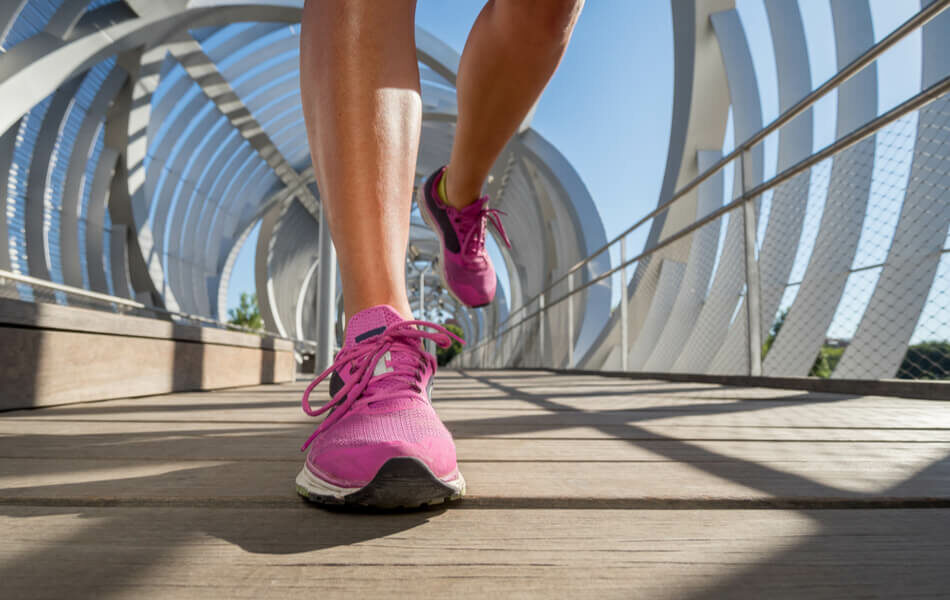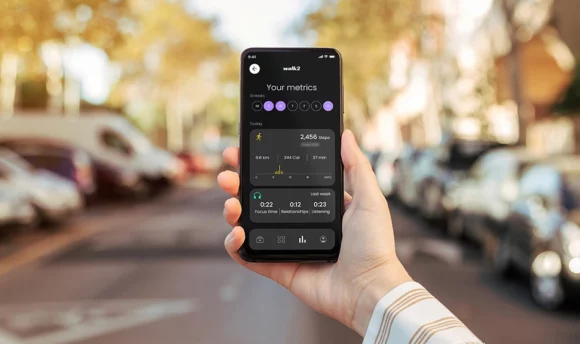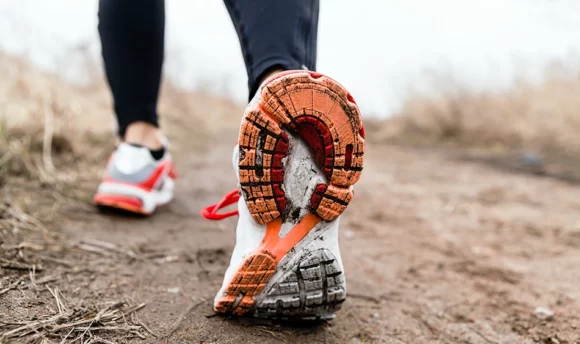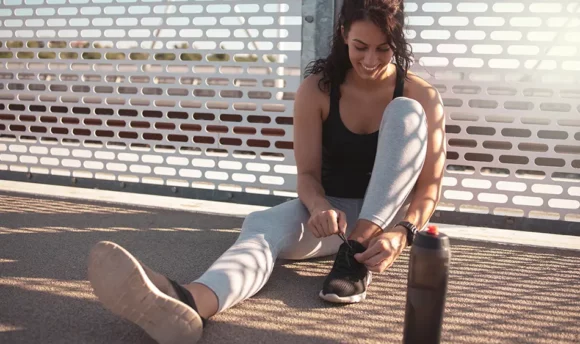What Is a Good 5K Time? Tips to Improve Pace
Several factors influence how long it takes most people to run a 5K race. What are the exact numbers?

5K is an ideal target if you’re just getting into running or want to run a manageable distance. Nevertheless, you may want to know how long it should take to run a 5K race to keep track of your performance and progress.
In this article, we will be looking at the ideal time needed to run a 5K race and key factors that influence and improve your average 5K time.
What Is a Good 5K Time?
On average, it takes about 23 minutes and 58 seconds to go from the starting line to the finish line. Many runners log a 30-minute 5K time, and they are happy with that.
With walking, it typically takes between 45 to 60 minutes to complete a 5K. If it is your first 5K race, you can make use of the national average statistics to get a potential performance benchmark.
What Is the 5K World Record?
Currently, the world record for a 5K is 12 minutes and 35 seconds. The 23-year-old Ugandan, Joshua Cheptegei, holds the record. Joshua performed this feat in his first race of the season in 2020 at the Monaco Run 5K. He had topped the previous record set by Kenenisa Bekele by about 27 seconds.
What Makes an Impact on the Running Pace?
Many factors affect swiftness. Three of the most significant factors are age, sex, and capability.
Age
It is obvious that the older you get, the slower you become. However, the question now is how exactly does growing older affect your speed? Many assume that a younger runner will run faster than an older one. How true is this?
There have been many peer-reviewed studies performed to answer these questions. One such study was performed in 2014 by a team of researchers from the José Cela University in Spain. The study analyzed the running times of the top 10 men and women at intervals of 1 year (from 18 to 75 years) for the 2010 and 2011 New York City marathons.
This study found that the relationship between a runner’s age and running time was U-shaped, with the lowest race time for men at 27 years of age. The lowest for women was at 29 years of age. Running pace increases with age till the late twenties, then it decreases from then on.
Interestingly, other studies have found that the running pace does not begin to decrease significantly until 40.
Sex
Sex also affects running pace. On average, men tend to be faster than women on short sprints. However, research indicates that the pacing dynamics for men and women are quite different when it comes to long-distance races.
A 2015 study of non-elite distance runners published in the NCBI journal reveals this fact. The study analyzed data from 14 U.S. marathons in 2011, encompassing over 91,000 performances.
It found that women showed a mean change in pace over long distances of about 11.7%, while for men, it was 15.6%. Furthermore, women had higher odds of maintaining the pace than men did.
Ability
This is a measure of your skill or proficiency in running. The grade many runners fall under is a function of their abilities. As such, we have the following grades:
Beginner: Beginners are usually those that have been running for a few weeks or a month. Beginners typically run faster than 5% of other athletes.
Novice: They are typically faster than 20% of athletes and have been running regularly for 6 months at the least.
Intermediate: They are those who have been running regularly for at least two years and are faster than 50% of their predecessors.
Advance: They are those who have had at least 5 years of running experience. An advanced runner runs faster than 80% of other runners.
Elite: They are the more experienced runners with at least 5 years of running experience under their belts and can now move faster than 95% of the other runners. The difference between them and advanced runners is glaring.
Which one of these levels you find yourself in will determine your running pace. You can guide yourself with the male and female reference standards for ability per age.
How to Improve the 5K Running Time
Whether you are running for sports or exercise, it is usual to keep track of and try to improve your running speed. Here we will look at some things you need to do to improve your speed.
#1 Healthy diet
For a runner, food is more than just nutrition. It is your fuel. As such, a healthy diet is very important. Changing your current running time results will be very hard to do without it. However, you must also understand that diet is about more than just what you eat or drink. It is also about when you eat, how you eat, and how much you eat.
There are a few things to note when it comes to best dietary practices.
- Eat more. It should go without saying, but you burn loads of calories when you run. Thus, it is important to replenish these calories by eating more, especially during workout days.
- When preparing for your race, especially if it is a marathon, you will feel hungry. However, if such hunger becomes constant, then it is time for a dietary change.
- You should also eat enough protein. While complex carbohydrates can be good for fast running, proteins will stabilize your blood sugar and make you feel full for longer. The ideal for athletes is 0.5–0.7 grams of protein for each pound of body weight daily.
- You should pay attention to calorie consumption. To avoid turning to calorie-laden food when hungry, you should have some healthy snacks on hand, especially during a workout.
#2 Try different running exercises
Whether you are a beginner or an advanced runner, your workout plan should consist of varied workouts to improve your average time come race day. There are a couple of reasons for that.
The biggest reason for this is adaptive resistance. Adaptive resistance occurs when you have gone through a particular exercise for an extended period, and your body stops responding to it.
Further engagement in that exercise becomes pointless at such a point, as it brings no further improvements to your average speed or strength. This is why you need a workout plan with a mix of exercises. We recommend you try the following before race day:
- Tempo runs: Tempo runs help boost your lactate threshold. In addition, they will raise your body’s efficiency at clearing lactate. The faster you can run while your body clears lactate, the more your average race times will improve.
- Fartleks: Fartleks are a type of interval-training exercise that improves race tactics and form. They involve short bursts of speed within a steady run. Fartleks are very good for improving your average 5K time, and the best runners use them.
- Uphill runs: Uphill runs are a kind of resistance training that helps build muscle mass. The prime beneficiaries of this type of training are the calves, quads, and hamstrings. In addition, uphill training can improve your 5K time.
- Long runs: Long runs are a type of endurance training that, if done well, can also boost your 5K time. However, it is important that you set realistic goals for such long-distance training. For example, if you are a beginner, you could start with two miles and slowly move up to greater distances over time.
There are numerous functional workout apps and websites to choose from.
#3 Do not forget other exercises
By switching exercises in your training plan, you can build muscle and get the best results from your speed or strength training.
To give one example, you could try to add some bench-pressing every Monday or try pushups between running sessions every week, switching up the routine when setting up your training days.
Pushups, in particular, help increase muscle mass and strength and increase joint support.
FAQ
Five kilometers is 3.12 miles.
This will depend on some factors, such as age group, length of stride, and walking speed. Nevertheless, going by the rule of doubling your running time, the average person will walk 5K in between 45 to 60 minutes.
Among women of all ages, the average time for a 5k is 26:07. For reference, 14:44 is the fastest 5k time ever run by a woman.
A Word From Our Coach
Getting a 5K done in record time is a big goal for many, regardless of whether you are a complete beginner or an experienced runner.
The best strategy for you is to combine a personalized training and dietary regimen, giving your body the needed advantage to power through to the finish line.
Starting from the basics is more important than running on faulty foundations. In that regard, you can get assistance from a registered dietitian and a fitness coach to see you through your journey.
They provide an invaluable service and let you in on key secrets that most health media websites fail to publish in their popular articles.
Conclusion
Whether you are running for athletics or just for fitness, the right practices can help you improve your performance. The important thing is to realize that running abilities differ, so you must consider these in assessing your performance.
Similarly, it would help if you stuck to a healthy dietary regimen, which will greatly improve your performance. It would be best if you also supplemented this with a barrage of cross-training, resistance training, and cardio to develop the strength, stamina, and endurance you need when race day comes.
Plan your route ahead of time, utilize mile markers, and get comfortable clothes to excel. Lastly, you need to engage in more than one running exercise as that is the only way to improve and grow as a runner.

















































 Select your language:
Select your language: 








